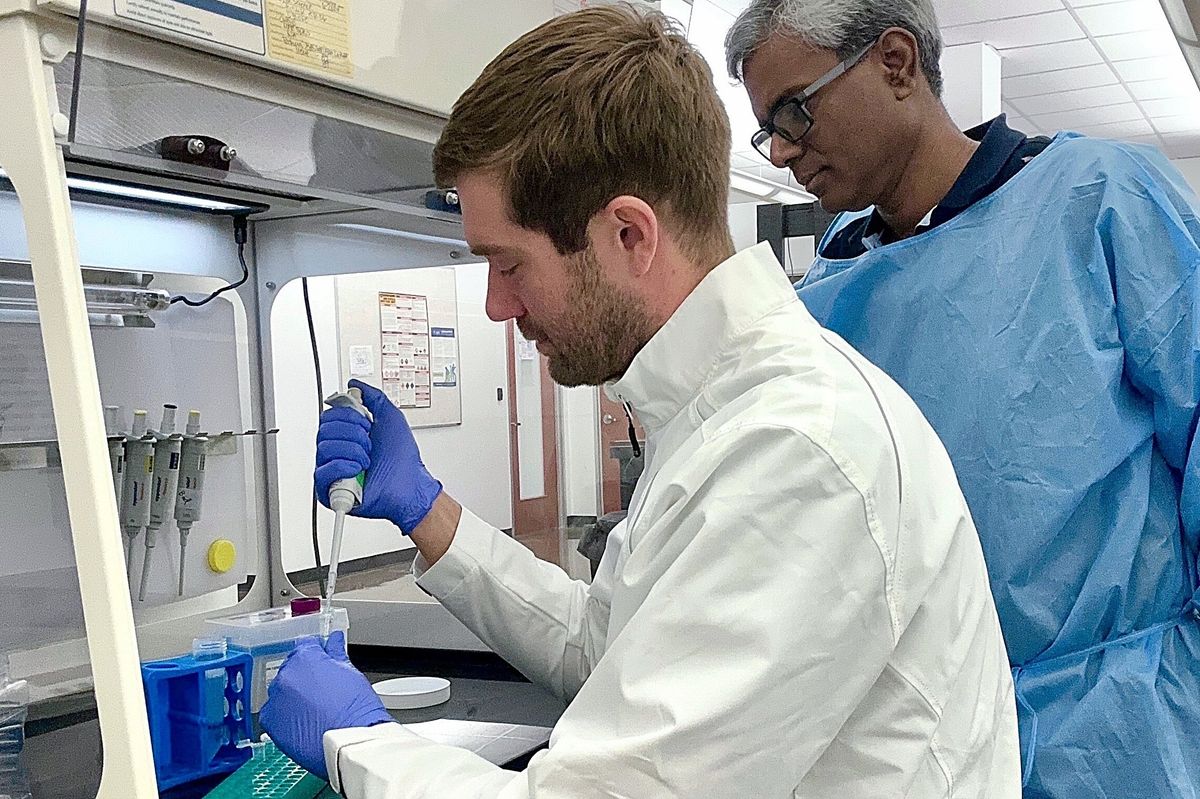Several prominent cancer researchers are coming to the Houston area thanks to $22 million in grants recently awarded by the Cancer Prevention and Research Institute of Texas (CPRIT).
The biggest CPRIT recruitment grant — $6 million — went to genetics researcher Jean Gautier. Gautier, a professor of genetics and development at Columbia University’s Institute for Cancer Genetics, is joining the University of Texas MD Anderson Cancer Center to continue his research.
The website for Gautier’s lab at Columbia provides this explanation of his research:
“The main objective of our research is to better understand the molecular mechanisms responsible for the maintenance of genome stability. These controls are lost in cancer, which is characterized by genomic instability.”
Aside from his work as a professor, Gautier is co-leader of the Herbert Irving Comprehensive Cancer Center’s Cancer Genomics and Epigenomics Program at Columbia.
Other recipients of CPRIT recruitment grants include:
- $2 million to recruit Xun Sun from the Scripps Research Institute to the University of Texas Medical Branch at Galveston.
- $2 million to recruit Mingqi Han from the University of California, Los Angeles to MD Anderson.
- $2 million to recruit Matthew Jones from Stanford University to MD Anderson.
- $2 million to recruit Linna An from the University of Washington to Rice University.
- $2 million to recruit Alissa Greenwald from the Weizmann Institute of Science to MD Anderson.
- $2 million to recruit Niladri Sinha from Johns Hopkins University to the Baylor College of Medicine.
- $2 million for Luigi Perelli to stay at MD Anderson so he can be put on a tenure track and set up a research lab.
- $2 million for Benjamin Schrank to stay at MD Anderson so he can be put on a tenure track and set up a research lab.
Over $20.2 million in academic research grants were awarded to researchers at:
- Baylor College of Medicine
- Houston Methodist Research Institute
- Rice University
- Texas Southern University
- University of Houston
- University of Texas Health Science Center at Houston
- University of Texas MD Anderson Cancer Center
- University of Texas Medical Branch at Galveston
In addition, nearly $4.45 million in cancer prevention grants were awarded to one researcher at the University of Texas Medical Branch at Galveston and another at Texas Southern University.
Also, five Houston businesses benefited from CPRIT grants for product development research:
- Allterum Therapeutics, $2,999,996
- CTMC, $1,342,178
- Instapath, $900,000
- Prana Surgical, $900,000
- InformAI, $465,188
“Texas is a national leader in the fight against cancer,” said Kristen Pauling Doyle, CPRIT’s CEO. “We can measure the return on investment from CPRIT grants … not only in the economic benefits flowing from increased financial activity and jobs in the state, but more importantly in the cancers avoided, detected early, and treated successfully. Thanks to the Legislature’s vision, this commitment is saving lives.”
Overall, CPRIT approved 61 grants totaling more than $93 million in this recent round of funding.
- UH student earns prestigious award for cancer vaccine research ›
- UH research team receives grant to fight aggressive pediatric cancer ›
- Rice, MD Anderson receive $1.5 million to further brain cancer research ›
- Houston organizations snag chunk of recently announced $49M cancer research grant funding ›
- Houston hospital to establish genomics research hub as part of CPRIT's $60M round of grants ›
- Texas institute grants $12M to bring leading cancer researchers to Houston ›
- MD Anderson, TOPPAN launch joint venture for invivoid cancer treatment tech - InnovationMap ›
- CNSide Diagnostics to launch central nervous system cancers patient testing - InnovationMap ›

 CEO Cameron Owen and Chief Scientific Officer Deenadayalan Bakthavatsalam work on insulin purification in the Houston lab. Photo courtesy
CEO Cameron Owen and Chief Scientific Officer Deenadayalan Bakthavatsalam work on insulin purification in the Houston lab. Photo courtesy The EnMed program is graduating its first class this week. Photo via HoustonMethodist.org
The EnMed program is graduating its first class this week. Photo via HoustonMethodist.org